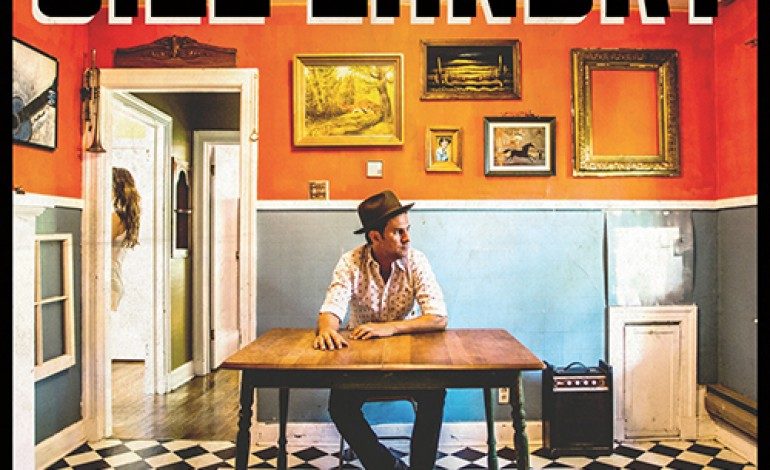

No Need to Repeat
If hoping to smile with this record, forget it right now. If planning on moping around gloomily in sweatpants, this album is a solid contender. Singer/songwriter Gill Landry is also known as a member of the string band, Old Crow Medicine Show, and originating player in the country/blues group, The Kitchen Syncopators. With his third and self-titled solo album, Landry offers a characteristically dark, sometimes cathartic, though not terribly unique, Americana-inspired project.
There are hundreds of voices just like Landry’s in country (and other) genres — slight grit, forays into the deep tones of the low register — and it’s hard to separate him, and by extension, this album, from any others. Thankfully, Landry has exceptional diction, clarifying some excellent lyrical skills. This includes lines such as, “hard to find a spark / when the world is cold and dark / in my mind” or “the pages are tattered / and full of bad dreams” or “blood is flowing where signals got crossed.” Often dark yes, but visceral and meaningful.
Gill Landry encompasses a fairly typical collection of Americana-inspired instruments, including acoustic guitars, harmonica, tambourine, drums, piano and strings. Overall, the musical aesthetic of the album is well done and the sound is cohesive. Little surprises on tracks such as “Fennario,” featuring the Spanish-influenced guitar of Robert Ellis and Nick Etwell of Mumford and Sons on trumpet, contribute fresh sounds. This is undoubtedly a musically solid album.
The tracks that excel are more up tempo with the most moving parts. “Take this Body” begins with a sweet, light, guitar introduction before Landry joins with Odessa Jorgensen on strings. But what really stands out is the instrumental break. Introducing piano with some dissonant harmonies, the haunting voice of Laura Marling enters, then her voice layers in again with a counterpoint melody. The drums become more active, primarily sticking to lower toms, and Etwell adds to the mix with trumpet. The result is a breathtaking instrumental feature, the magic of which breaks when it evaporates back into Landry’s verse.
However, sometimes too much is attempted in a single track. “Lost Love” begins with an aggressive, seedy electric guitar and lyrics like, “this voice is calling from the past / to let you know I’m leaving.” Suddenly, an open snare drum kicks in with a super simple beat; Landry’s launched into something akin to traditional country shtick. Trumpets jump in randomly with a half-baked riff out of a 60s tune, making this song seem even more confused about its genre and intention.
Gill Landry presents a gloomier outlook on love and life with poetic lyrics and a mix of accompanying instruments, which really drive the appeal of the album. While sometimes vocally generic and a little too chaotically structured, there is something satisfying about many parts of this record. However, it certainly doesn’t need to be on repeat.
